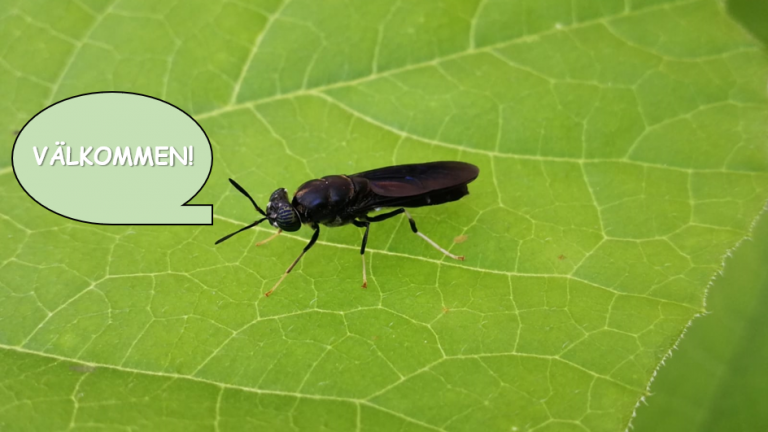Björn Vinnerås was at Universiti Tunku Abdul Rahman (UTAR) as External Examiner at the Faculty of Engineering and Green Technology to evaluate their Master of Engineering Science and PhD education in Engineering. He had the chance of looking at their interesting and good structure of their education and looking through several interesting projects that they are performing. Among all projects, it was interesting to see the Black Sodier fly project where Dr. Leong Siew Yoong was looking into the potential of using the lipids from the larvae to produce biodiesel. During the visit, Björn also gave a guest lecture for the Environmental Engineering students, with many interesting questions and discussions.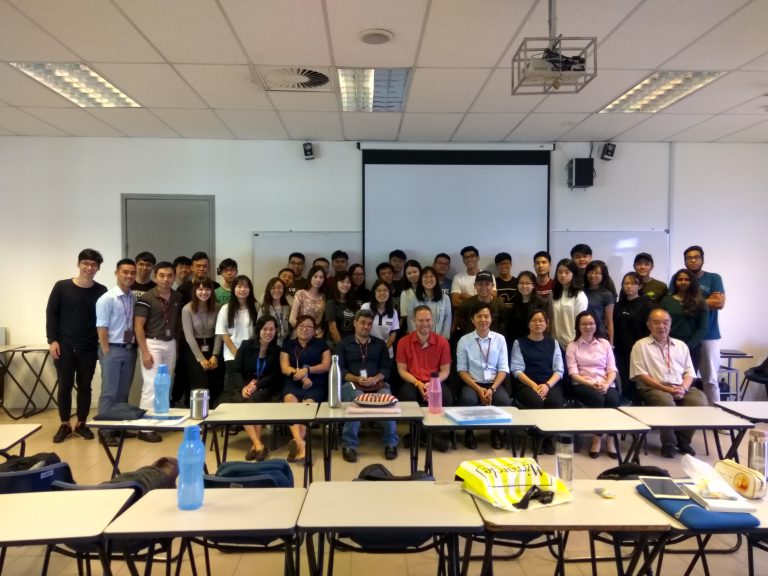 Group picture after the lecture at UTAR
Group picture after the lecture at UTAR
Category: English
Nordic insect production discussed at a workshop in Denmark
Nordic Insect workshop focusing on development of insect production for feed and food was arranged by DTU and Nordic Working Group for Microbiology & Animal Health and Welfare (NMDD) In Roskilde, Denmark. Evgheni Ermolaev from our group and Bettina Julin from the Swedish National Food Agency represented Sweden at the meeting.
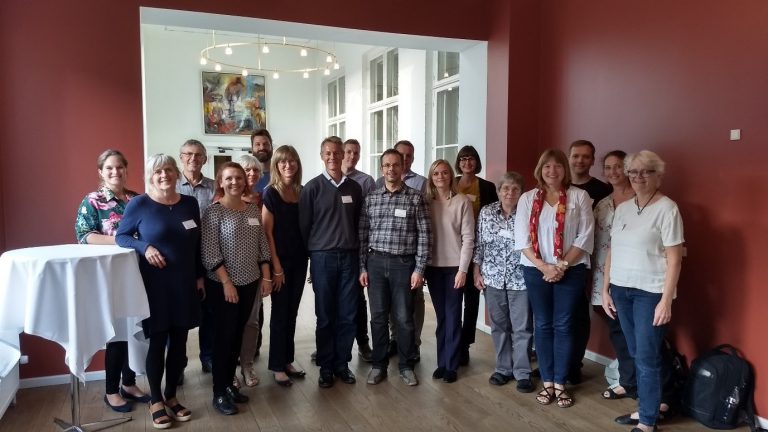
Finnish delegation visits SLU to discuss on-site urine treatment
Last week our group hosted a delegation of stakeholders from Finland, representing between them the City of Tampere, The Finnish Environment Institute, The Global Dry Toilet Association of Finland and Tampere University of Applied Sciences. They were at SLU to discuss their ongoing projects, MORTTI – mobile nutrient recovery under field conditions and HIERAKKA – long-term effects of applying urine fertilizers. The project looks at identifying and piloting new solutions for the capture and utilisation of nutrients in urine and faeces. We thus discsussed the possibilities for on-site treatment of urine in Finland as well as potential collaboration for implementing urine drying technology at pilot study locations. This was followed by visits to our lab, where we have been running three household-scale urine drying systems & a tour of our black soldier fly composting colony. 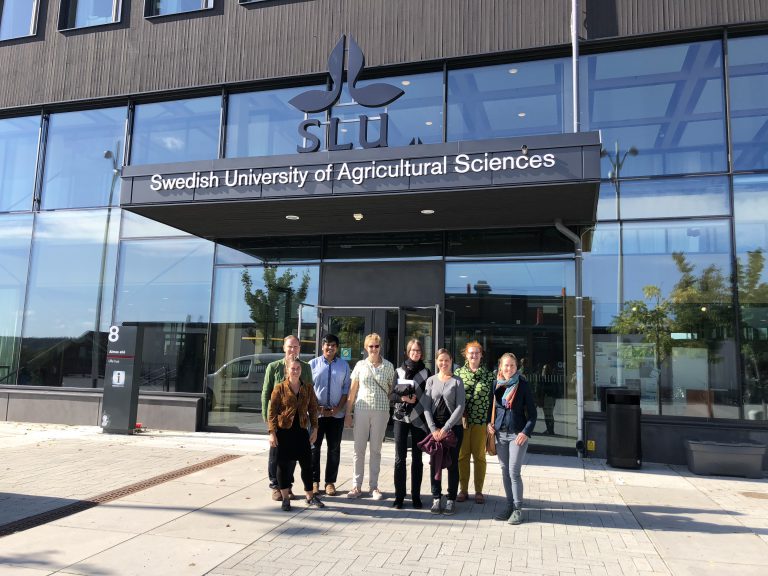 PC: Carl Willandt, Ekokumppanit Oy
PC: Carl Willandt, Ekokumppanit Oy
New Masters project on fatty acid composition in BSF larvae and substrates
I’m Nils Ewald, one of the latest master students to join the Black Soldier Fly team at the department. I’m currently doing my last year at the Agriculture program in Food Science here at SLU. As a student in food science it is very interesting to be able to dig into the widely discussed field of insects as food and feed. During the autumn I will investigate the fatty acid composition in the BSF larvae, as well as the substrates (such as food waste) they are reared upon. The aim is to see how the fatty acids found in different substrates affects the fatty acid composition in the fly larvae.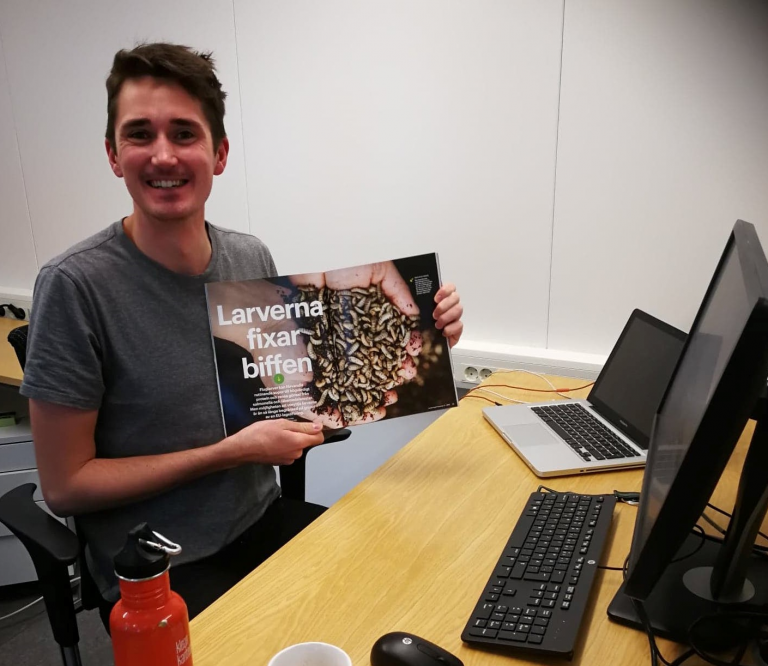
Environmental Engineering group hosts Professor Christine Moe
The Environmental Technology group was pleased to host Christine Moe, Gangarosa Professor of Safe Water and Sanitation at Rollins School of Public Health, Emory University, USA. During her visit, 3-4th of September 2018, Christine met the researchers and PhD students in the group and discussed potentials for future collaboration in research and education with sanitation sector. Christine also held a lunch seminar where she presented her research finding regarding “Examining Exposure to Fecal Contamination in Low-Income Urban Environments: Findings from the SaniPath Exposure Assessment in Seven Cities”. Christine’s visit came within the framework of the project “Microbiological and pharmaceutical risks from reuse of wastewater streams and products in agriculture, MPR-WST-agri”. MPR-WST-agri was funded in 2017 by the Swedish Foundation For International Cooperation In Research And Education- STINT. The project is led by Sahar Dalahmeh, a researcher in the group. 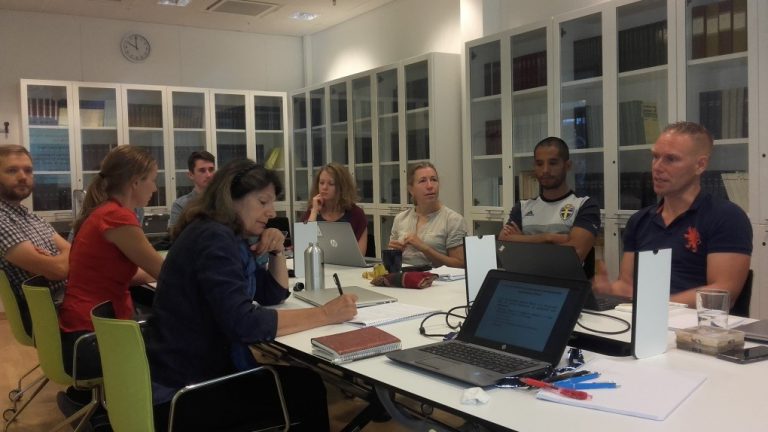
Implementation of demonstration biochar filter for small-scale sewage treatment funded by Swedish EPA
The Swedish Environmental Protection Agency decided to grant Sahar Dalahmeh, a researcher at the Swedish University of Agricultural Sciences, 475 000 SEK to implement demonstration biochar filter for Small-scale Sewage Treatment”. The project intends to scale the laboratory system to full scale module to treat single- household wastewater. Within the project, system’s function and treatment ability as well as outgoing water quality will be evaluated. The Projects period is August 2018-July 2019.
Ivã Guidini joins the environmental engineering group
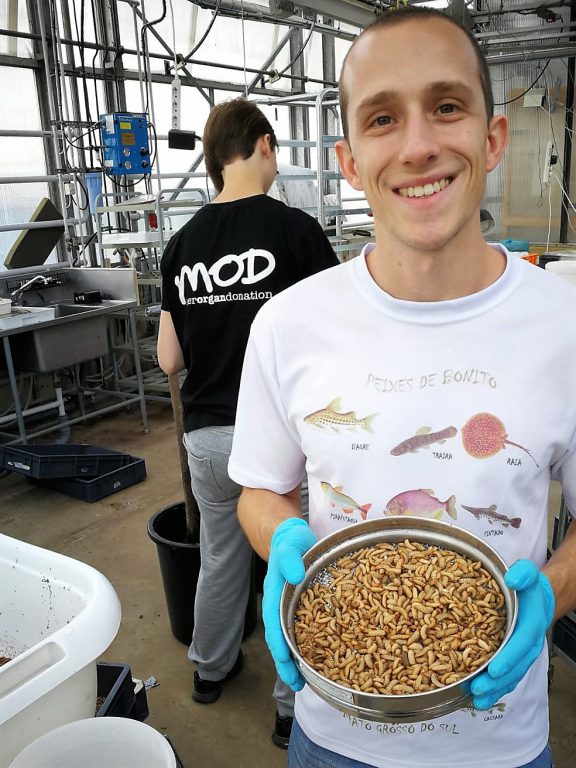 Foto: Viktoria Wiklicky
Foto: Viktoria Wiklicky
I am a biologist from São Paulo State University (Unesp) and a PhD student from the Unesp Aquaculture Center (Caunesp), where I’m currently studying different handling methods of windrow thermophilic composting using fish carcasses (as nitrogen source) and wood shavings/peanut shells (as carbon sources). My study involves practical information about the composting process, economic assessment analysis and the influence of the organic composts on soil fertility, with special regard to nitrogen.
In SLU, I will study the BSF composting process using fish carcasses as larvae feed, with two main goals. In the first experiment, we will evaluate the improvement of larvae’s nutritional quality by supplying food waste and fish carcasses over time in different proportions. In the second experiment, we will verify the dynamics of pathogen reduction by means of the BSF larvae composting system, using fish carcasses as feed.
Effects of larvae-specific bacteria on composting process
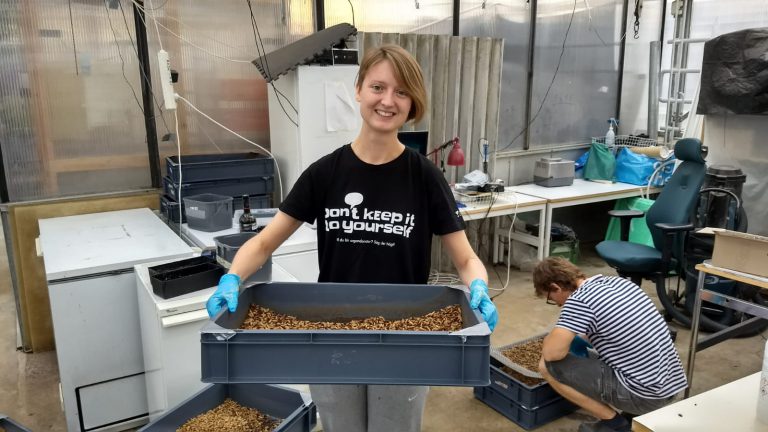 Foto: Evgheni Ermolaev
Foto: Evgheni Ermolaev
My name is Kristina Lundgren and I am a student in a master programme in Environmental and Water Engineering at Uppsala University and SLU. Starting in autumn, I will work on my Master Degree project at the Department of Energy and Technology, SLU, in the field of fly larvae composting using black soldier fly. In the project I am investigating how larva-specific bacteria affect the composting process. The idea is to see if it is possible to make the process more stable or effective by adding one or more bacteria to the substrate that the larvae will process. There are not so many studies that have this focus, so it will be very exciting to see what my experiments will show.
Contact
Cecilia Lalander
What does the term ‘ecotechnology’ mean?
In 2015, the term ‘ecotechnology’ was used as one of the themes for a funding call by the joint Baltic Sea research and development programme BONUS. The call defined areas where ecotechnologies could be applied, but did not explicitly define the term itself. Against this backdrop, researchers including Jennifer McConville from our group decided to systematically review the literature on the use of the term ‘ecotechnology’ to inform the future work of the BONUS RETURN project. Many articles simply use the term as a “buzzword” without offering a definition of the term. However, the review found 49 articles with explicit definitions. These definitions contain a variety of embedded concepts for describing the types of technologies, the benefits and the processes that can be seen as ecotechnologies. We clustered these concepts into a conceptual framework that we feel captures the multiple perspectives represented in the term ecotechnology. Note that several of these concepts may be in conflict with each other. This framework is offered as a starting point for discussion around a possible common vision of ecotechnology, or at a way for authors to be transparent about the concepts embedded in their use of the term. On the basis of this review the author propose the following definition for use in the BONUS RETURN project: ‘‘Eco-technologies are human interventions in socialecological systems in the form of practices and/or biological, physical, and chemical processes designed to minimise harm to the environment and provide services of value to society’’ 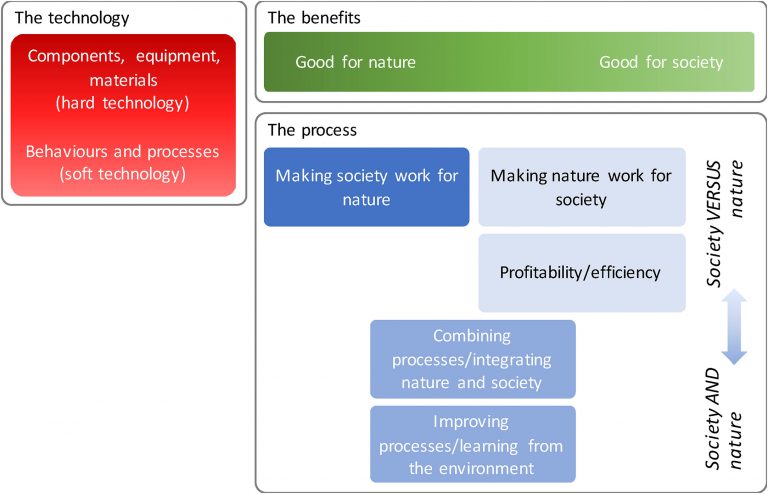
Open [Green] House 25th of September
On September 25 at 13:00-16:00 we will have Open [Green] House in our black solider fly research facility at SLU campus Ultuna in Uppsala. We will demonstrate our facility for breeding of BSF flies and our research on different aspects of waste management using the BSF larvae.
During the Open [Green] House, the researchers of the Environmental Engineering group will present ongoing projects.
